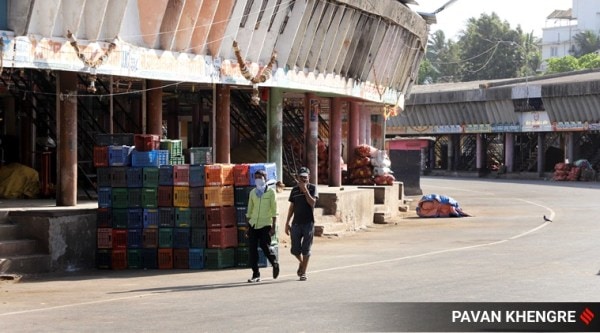 The NGOs have also set up two helplines — the Mokla Sanvad Mental Health Helpline and the Let’s Help Maharashtra helpline number. Express Photo: Pavan Khengre
The NGOs have also set up two helplines — the Mokla Sanvad Mental Health Helpline and the Let’s Help Maharashtra helpline number. Express Photo: Pavan Khengre
A bunch of organisations have come together for an initiative to dispel misinformation and relay scientifically correct information about coronavirus, its spread and treatment in rural and tribal regions of the state.
Volunteers of local non-profit organisations such as Eklavya, along with Savitri Jotirao College of Social Work and NGOs such as Maitri, Mitti Ke Rang, Palawi and Humane Society, have started translating guidelines by the World Health Organisation on the pandemic into local dialects and tribal languages such as Kolam, Banjara, Gondi and Korku, with the help of local volunteers.
“We decided to translate the guidelines and information by WHO… in Marathwada and Vidarbha regions. This was a necessary step… since the disease is new there is a high probability of superstitions erupting in the area, based purely on misinformation, and it will just hasten the spread of the disease. Our volunteers have translated and relayed the text through WhatsApp and also by conveying it to those who do not have access. We are trying to collaborate with local administrative bodies to help us print out the guidelines in the respective languages, so that our volunteers can take them to people,” said Raju Kendre, founder of Eklavya.
The NGOs have also set up two helplines — the Mokla Sanvad Mental Health Helpline and the Let’s Help Maharashtra helpline number. The Mokla Sanvad Mental Health helpline comprises a team of 20 including psychologists, clinical psychiatrists, general counsellors, doctors, specialists and volunteers. “The primary objective is to listen to anyone who calls. The pandemic situation has everyone under lockdown and it is bound to cause distress and anxiety, so we try to help them out. The helpline, which became active shortly after the complete lockdown was announced, has received a total of 300 calls so far not only from the state but from other states as well. The number of calls decreased after the Centre and state announced their helpline numbers, but we still get calls for information and help,” said Dr. Rushi Andhalkar, a general physician.
Psychologist Girish Mahajan said since the lockdown, most callers have complained about feeling lonely and anxious due to overexposure to information and news about the disease. “We have recieved calls when people say that they are stressed or panicky… even so, in the case of daily wage workers and migrants stranded in other states, the biggest help that we can give them is psycho-social support… several people have lost their jobs and there is a financial strain that is causing them to feel low. If we feel that the case is severe, wherein the thoughts are leaning towards suicide, we divert the call to the clinical expert,” he said.
Mahajan said he has received calls ranging from distress calls from students preparing for competitive exams stuck in cities, to calls from senior citizens and pregnant women. “While senior citizens are concerned due to their high risk factor, pregnant women are anxious about their child’s welfare. We have a set of specialists like cardiologists and gynaecologists on board that we connect them to. As far as students are concerned, not only are a lot of them worried about their entrances, several of them, who travelled back to their hometowns from cities, faced discrimination due to fear about the virus. I had a call from such a student who came from Dubai before the lockdown and while he tested negative, he faced discrimination from people around his area. I remember him telling me that given the prejudices linked to coronavirus, people going back home from big cities will not seek help even if they show any symptoms, and that is bound to worsen the situation,” he said
Under the Let’s Help Maharashtra helpline number, the NGOs are reaching out to daily wage workers, migrants and other communities which are in dire need of help. So far, with assistance from local administrative bodies, they have reached out to over 3,000 people, and provided them with medical facilities, food and water, accommodations and psychological support.